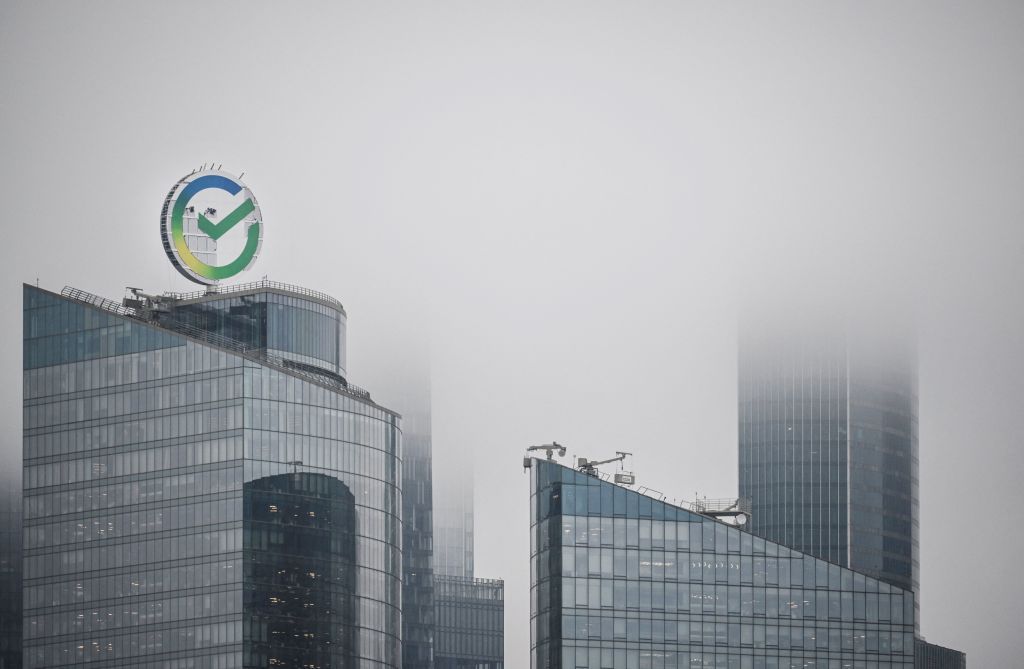that the country’s banks had achieved record profits last year, raking in some $36.8 billion. This turnaround was attributed to a number of economic measures implemented by the Kremlin to overcome Western sanctions. One such measure was subsidized mortgages, which saw a significant uptake among Russians. In 2023, mortgage lending rose by nearly 35%, with 83.4% of those mortgages being subsidized. While this surge in mortgage repayments has reinvigorated Russia’s banks, it has also led to increased government expenditure to bridge the gap between the “preferential rate” and the actual rate. Russian officials acknowledge that this level of spending is unsustainable in the long run and is already contributing to rising inflation levels, which stood at 7.4% at the end of last year compared to 3.7% in Germany and 3.4% in the United States.
Despite being under Western sanctions, Russia’s banking industry is once again thriving. Russia’s state-owned Sberbank announced a first-quarter net profit of $4.32 billion, an 11.3% increase over the same period last year. The bank reported a record annual profit of $16.3 billion in 2023, marking a more than five-fold increase from the previous year. The CEO, German Gref, attributed this growth to strong growth in retail clients’ funds at the start of the year, which provides a solid foundation for future business development. Sberbank announced a dividend payout of $8.04 billion, with the majority-owned Russian state having the potential to use this money for funding the full-scale invasion of Ukraine.
The immediate aftermath of Russia’s full-scale invasion of Ukraine in 2022 saw Russia’s banks experience a sharp decline in profits, with a 90% decrease compared to the previous year. However, this downturn was short-lived as Russia’s Central Bank later announced that the banking sector had achieved record profits in 2023, reaching $36.8 billion. The sector’s recovery was attributed to various economic measures undertaken by the Kremlin to mitigate the impact of Western sanctions, including subsidized mortgages. The significant increase in mortgage lending, with a majority of mortgages being subsidized, has bolstered the banks but also resulted in heightened government expenditure to offset the difference between the preferential and actual rates, contributing to rising inflation levels in the country.
The surge in mortgage lending and subsequent increase in profits for Russia’s banks raise questions about the role of war in the sector’s resurgence. While the economic measures implemented by the Kremlin have proven effective in revitalizing the banking industry, concerns exist regarding the sustainability of these strategies in the long term. The reliance on subsidies and increased government spending to support the banks’ growth may lead to higher inflation levels and economic instability. This raises broader questions about the impact of war and geopolitical tensions on economic sectors, and the balance between short-term gains and long-term sustainability in the face of international sanctions and conflict.
The resilience of Russia’s banking sector in the face of Western sanctions and geopolitical challenges highlights the complexities of balancing economic growth with political factors. The sector’s ability to rebound and achieve record profits in 2023 showcases the adaptability of Russian banks in navigating difficult circumstances. However, the reliance on government subsidies and increased spending raises concerns about the long-term viability of this growth trajectory. As inflation levels rise and economic stability is threatened, policymakers must carefully assess the trade-offs between short-term gains and long-term sustainability in supporting the financial sector amidst ongoing geopolitical tensions.
In conclusion, the recent success of Russia’s banks in achieving record profits in 2023 underscores the sector’s resilience in the face of Western sanctions and geopolitical challenges. The implementation of economic measures such as subsidized mortgages has played a significant role in revitalizing the banking industry, attracting increased lending and bolstering profits. However, the reliance on government support raises concerns about the sustainability of this growth trajectory, especially in light of rising inflation levels and economic instability. As Russia continues to navigate international sanctions and conflict, policymakers must carefully consider the trade-offs between short-term gains and long-term sustainability in supporting the financial sector amidst ongoing geopolitical tensions.


